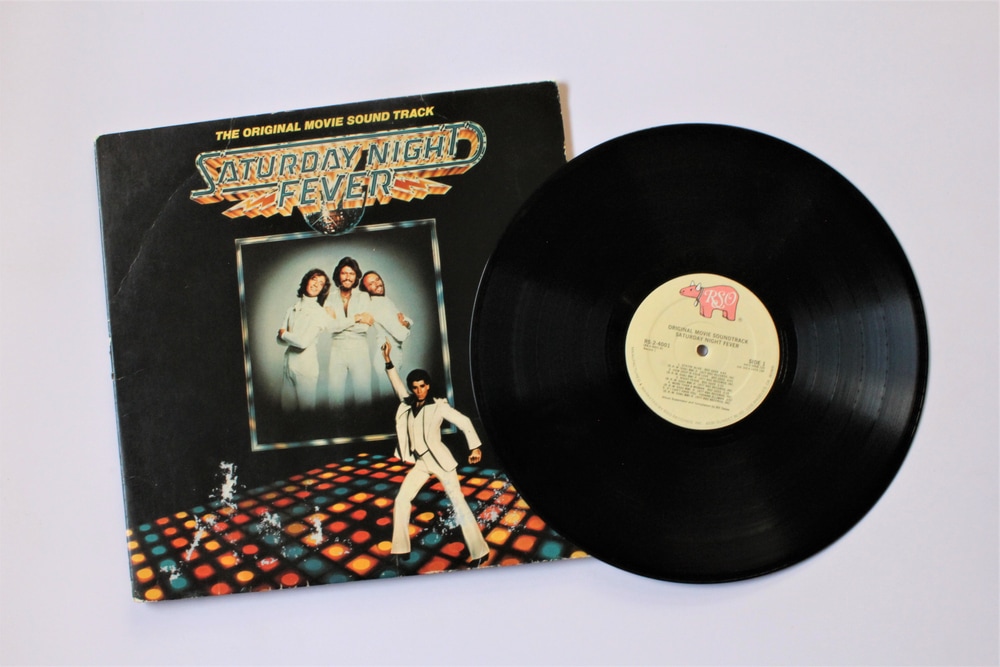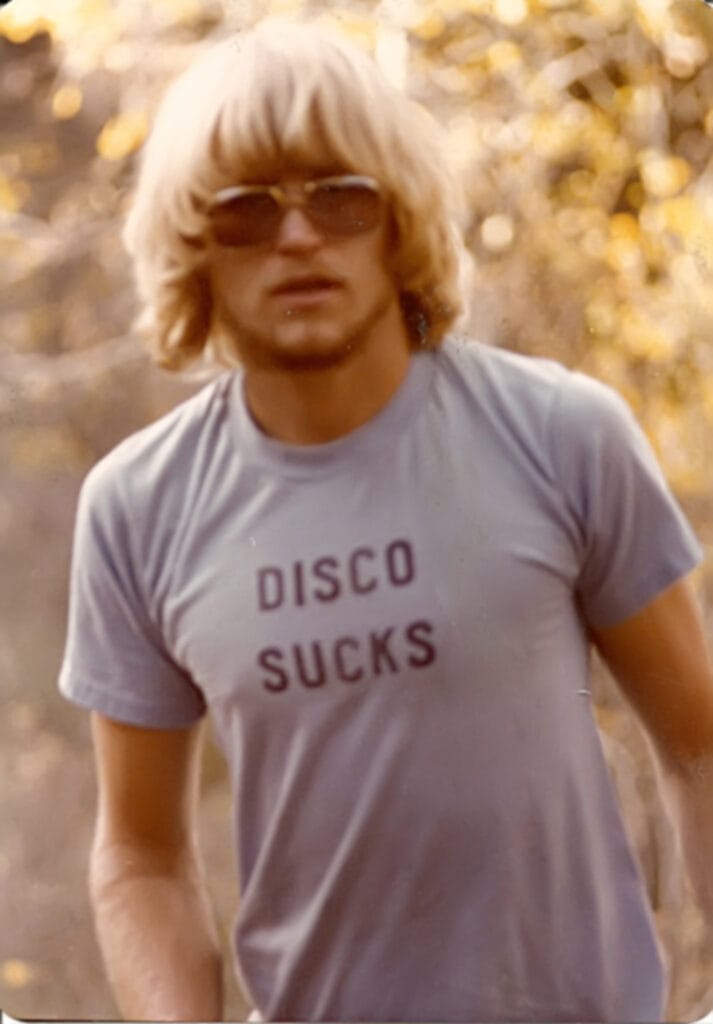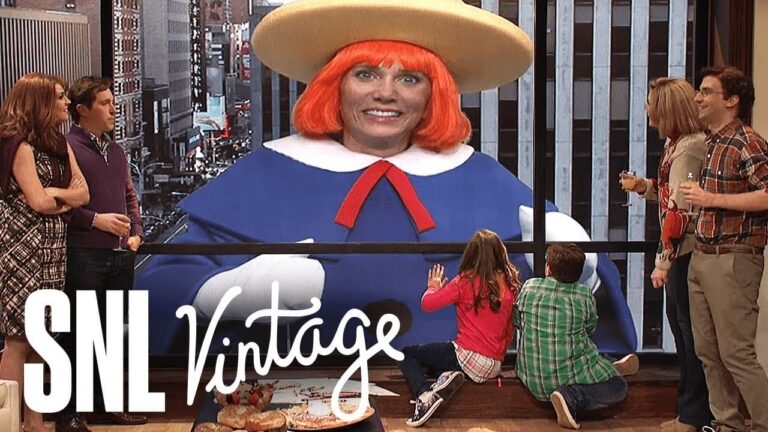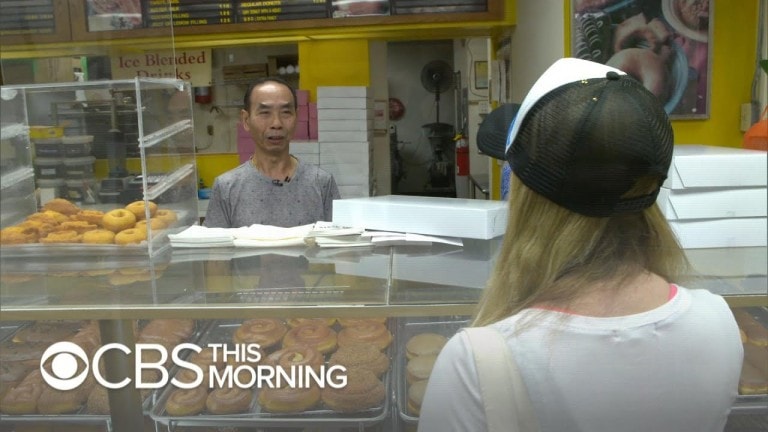Table of Contents
ToggleThe Rise And Quick Fall Of Disco
No other word in music can conjure more anger, emotion and antipathy than the word “disco.” No other style of music – or music “craze” – soared to such dizzying heights as it did in 1979, when it peaked, only to crash and burn one year later. But why did it crash?
Disco’s demise can be traced to 1980’s infamous “Disco Is Dead” stunt, where people in Chicago were encouraged to bring disco records and burn them. As a young person at the time, this event confused me. Why were these people so full of anger and hatred that they would take part in such a mindless spectacle? I’ve only recently come to understand why.
When Disco Ruled The Charts
The disco sound had flourished underground since the early 70s. In the middle of that decade, it suddenly took over the world. Donna Summer’s “Bad Girls” produced two number one singles and sold over 4 million albums. Michael Jackson began his journey to solo superstardom with “Off The Wall.” And Chic (in ‘78) produced what for me was the best of the best, their masterpiece “C’est Chic.” Disco records ruled the charts.
The music was unapologetically Black, female and gay, in parts. And it left no room for the rock and pop acts that came before it. If Rod Stewart, The Rolling Stones and Paul McCartney wanted to get back on the charts, they had to make disco records, which they did.
Saturday Night Fever

But something snapped when the Bee Gees set the world on fire, to the tune of 40 million records with the “Saturday Night Fever” album. A major backlash. Disco became overexposed. Sesame Street and Ethel freaking Merman made disco records. McDonald’s sold disco-themed meals. The word was being used to sell jeans and makeup and breakfast cereal and clothes.
Disco Is Dead
And it all climaxed in July 1979. A Chicago shock jock invited people to bring disco records to a White Sox game, where the records would be destroyed in an explosion. Fifty thousand people – twice as many as expected – watched and reveled and eventually rioted as the records went up in a blaze so massive that it destroyed the baseball field.
The event was dubbed Disco Demolition Night, and it came to be known as a demarcation between disco’s peak and its fall from popularity. One minute, Chic’s “Good Times” was number one, the next minute it was “My Sharona,” which became the biggest song of the year with disco out of the way. “My Sharona” was the antithesis of disco – a pop/new wave rock song by apparently straight white males.

Disco became a bad word. “Disco sucks” was heard everywhere. Record companies and radio stations that had jumped full force into disco rebranded themselves, to country or rock or oldies. Acts who made their bones in disco sank into obscurity or tried to shift to “rock” music, as Donna Summer did. Disco was a casualty of its own success.
HBO, The Bee Gees, And Burning Black Music
Fast forward to 2021. I was watching an HBO special on the Bee Gees, the group that profited most from disco. The special outlined their history as a pop/rock act of the 60s and their brief but wildly successful stint making disco music. Barry Gibb, the last surviving Bee Gee, reflected sadly on the “Disco is Dead” event. And a disc jockey who was present at the record burning event said while people were encouraged to bring disco albums to destroy, they brought other albums as well. They brought James Brown, Marvin Gaye, the Supremes, Aretha Franklin. These lunatics weren’t just protesting disco, they were burning Black music in general.
Watching the special, it became clear. These people were fed up seeing the music scene dominated by Black, female and gay-ish acts like Michael Jackson, Donna Summer and the Village People. They wanted their Elton John (who turned out to be gay in fact), their David Bowie (who later admitted to being bisexual), and their Queen (do I even have to say it?). Oh, the irony of it all.
Galvanized Hate
The disco demolition event served its purpose. It galvanized disco haters; it was a nail in the coffin to a craze that was fading anyway.
It should be noted that few if any of the acts I’ve mentioned considered themselves “disco” acts or used the word to describe themselves or their music. The disco moniker was largely a marketing tool which served its purpose and was quickly discarded.
When the masses turned their backs on it, disco didn’t disappear, it just went back underground. It had always simply been dance music, with touches of funk, pop and R&b. Sylvester continued to make what came to be known as Hi-NRG music (disco on speed), Donna Summer delved into light new wave, and other acts made adjustments along the way to survive.
In 2021, disco is having a revival, called nu disco. Absent of the stigma and pressures of the first disco wave, nu disco is percolating from New York, Detroit, Amsterdam, London and all over Europe. You can hear it on Sirius XM and clubs around the world. Disco is no longer a bad word.















